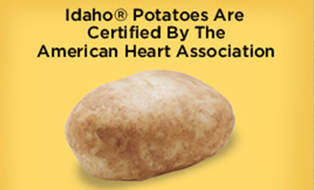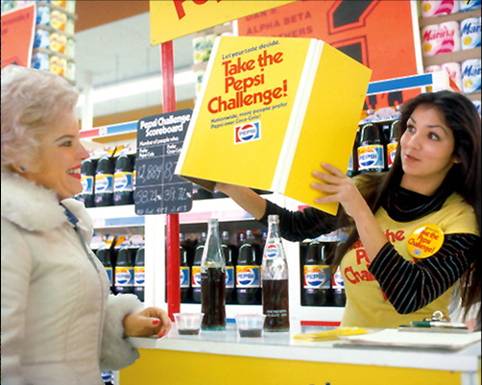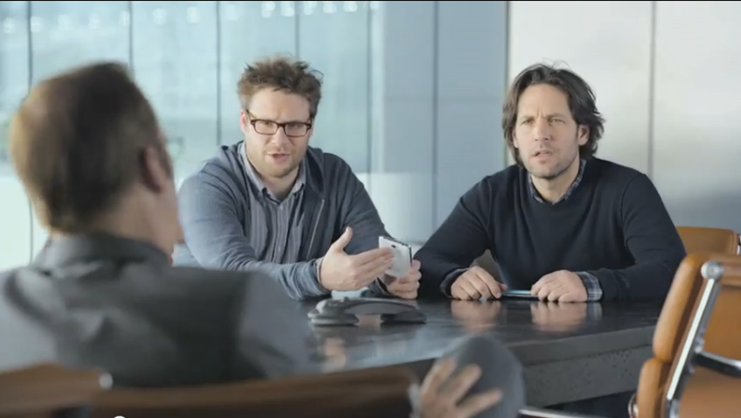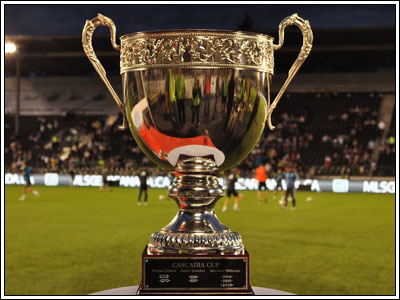Entries by Michael Atkins (1064)
Idaho Potatoes? In Turkey?
 An Idaho potato. Grown in Idaho.
An Idaho potato. Grown in Idaho.
Idaho potatoes? Grown in Turkey?
Last week, NPR aired a story about the Idaho Potato Commission’s reaction to a Turkish company’s effort to register IDAHO in connection with agricultural seeds in Turkey.
But not for potatoes, the company insists. They just like the foreign-sounding name.
Idaho apparently doesn’t have much of a reputation in Turkey — yet. It just doesn’t want its brand to go the way of other geographic names that were lost to genericide. Like Brussels with its sprouts or Cheddar and its cheese.
The story quotes Seattle’s Bob Cumbow on Idaho’s chances of protecting its geographical indication.
“[T]he whole idea of having enforceable geographical indications is still in discussion and dispute. The standards are going [to] vary from country to country and for that reason it’s going to be hit or miss where you can enforce these.”
Idaho’s hoping for a hit in Turkey. It’s registered various IDAHO marks in ten countries. Turkey’s not one of them, but I imagine that might soon change.
Fair Use Doctrines Protect Lawful Use of Another's Trademark
 The Pepsi Challenge: Made possible by comparative fair use
The Pepsi Challenge: Made possible by comparative fair use
We covered fair use today in my trademark class, and it occurred to me I haven’t talked about it much here.
Fair use, in all its flavors, is a defense to trademark infringement and a host of other forms of trademark wrongs. It’s the First Amendment winning out in the tension between freedom of speech and the right of a trademark owner to avoid infringement, dilution, cybersquatting, and unfair competition.
Here’s a quick review (or introduction) to the most recognized forms of fair use.
Classic Fair Use - Also known as “statutory fair use” since it’s codified in the Lanham Act, classic fair use is the descriptive use of words that happen to be someone else’s trademark. Just because someone uses it as a descriptive trademark doesn’t mean you can’t use it to accurately describe your good or service. For example, if true, I can say my coffee is both the best and is from Seattle notwithstanding the SEATTLE’S BEST COFFEE trademark.
Collateral Use - Use of a mark that does not claim sponsorship of goods. It’s ok to say that you’re selling reconditioned FORD trucks as long as you don’t suggest your refurbishments are factory authorized.
Comparative Use - Use of another’s trademark to identify the mark owner’s product in comparative advertising. As long as the comparison isn’t misleading, it’s perfectly ok to compare PEPSI to COKE.
Nominative Fair Use - Nominative fair use uses the plaintiff’s trademark to refer to plaintiff’s good or service. If there’s no other reasonable way to refer to the plaintiff’s good or service, it’s ok to use the plaintiff’s mark to do so as long as you don’t use more of the mark than is necessary and don’t imply any connection with the plaintiff. For example, it’s ok to say the SEATTLE SUPERSONICS, rather than “that professional basketball team that left town and hopefully will come back.”
Critique or Reporting Fair Use - Traditional First Amendment use is also carved out of the Lanham Act, so you report on, talk about, criticize, or parody any trademark by name. This is what allows Yelp to exist.
Remember, these are not immunities; they are defenses to violations of the Lanham Act. That means they’re something to invoke if accused of engaging in a trademark wrong. But they also carve out activity that is perfectly legal.
Commercial Pokes Fun at the NFL's Control of its "Super Bowl" Trademark
 Screen shot from Samsung’s new commercial. It’s worth watching.
Screen shot from Samsung’s new commercial. It’s worth watching.
You can’t call it the Super Bowl.
Or that’s what the NFL would have you believe.
Really, that’s a joke. The game’s called the Super Bowl, and if you want to refer to the Super Bowl, you don’t have to call it the “Big Game.” Using a trademark owner’s trademark to refer to the owner’s branded good is perfectly fair use. Not that I expect the NFL to agree with me.
This video — a new Samsung commercial — makes great fun of the NFL’s over-reaching control of its trademark. It’s really worth a look.
Check it out now, before its screens during the Big Game.
The Sonics Haven't Quite Returned to Seattle. Neither Have Their Trademarks.
 Coupla quotes yesterday about who owns the Sonics’ trademarks
Coupla quotes yesterday about who owns the Sonics’ trademarks
The Sonics haven’t returned quite yet.
And neither have their trademarks.
When owner Clay Bennett moved our beloved team to Oklahoma City, he took the basket of SEATTLE SUPERSONICS trademarks with him. In an agreement that settled the City of Seattle’s lawsuit intended to prevent the move, Mr. Bennett’s Professional Basketball Club, LLC, promised to return the marks to Seattle if a new owner brought an NBA-authorized team here that played in a renovated Key Arena. (Post discussing the agreement here.) Once those conditions are met, all the new owner has to do is request a transfer.
Things are looking good, but those things haven’t happened yet. That means fans who buy Sonics gear in the the euphoria of getting our team back presumably — and unwittingly — will profit the guy who caused our heartache. D’oh!
KING-5 TV interviewed me yesterday in a story about this odd twist.
My advice? Not that you asked, but wait to buy your Sonics gear until the purchase is complete and Oklahoma City transfers the trademarks back to the city where they belong.
Fans Strike Back, Apply to Register "Cascadia Cup" Themselves
 The Cup, from www.CascadiaCup.com
The Cup, from www.CascadiaCup.com
This is awesome.
Pacific Northwest soccer fans have been up in arms about Major League Soccer’s recent application to register CASCADIA CUP as a trademark with the Canadian Intellectual Property Office — Canada’s counterpart of the U.S. Patent and Trademark Office.
The Cascadia Cup is awarded to the fans of the team with the most points in a season between the Seattle Sounders, Portland Timbers, and Vancouver Whitecaps — by the fans of those teams. It’s been around since 2004.
So why did the league lay claim to the brand in December when it applied to register the mark in Canada? It’s not theirs to register.
True, the league could be trying to make sure a rogue didn’t claim it, but from the looks of it, the league’s the rogue. As in the States, the first to use a mark in Canada generally has superior rights. Since it’s a trophy by fans, for fans, it’s unclear what business the league has to protect it.
What’s cool is the fans have filed their own application to register the mark in the States. Just last week, the “Cascadia Cup Council,” an Oregon corporation, filed for CASCADIA CUP in Class 41 for “Entertainment services, namely, a contest designed to reward and honor professional soccer teams.” The Council claims a first use date in 2004 — the first year the cup was awarded.
From the Council’s press release:
“The supporters groups in Seattle, Portland and Vancouver jointly oppose Major League Soccer’s claim of ownership of the Cascadia Cup trademark. The three supporters groups have jointly used the Cascadia Cup mark for many years and have been the rightful owners of the mark. In response to recent statements and actions by MLS, the supporters groups recently formed a new entity, the Cascadia Cup Council, which acquired the supporters’ groups trademark rights in the Cascadia Cup mark. The Cascadia Cup Council will ensure that the mark remains in the hands of the very supporters who created it.”
It looks like the Council intends to oppose the league’s application in Canada as well.
Like I said, this is awesome. All I can say is, “Go Sounders!”
HT: Rachel Buker of the China Law Blog.